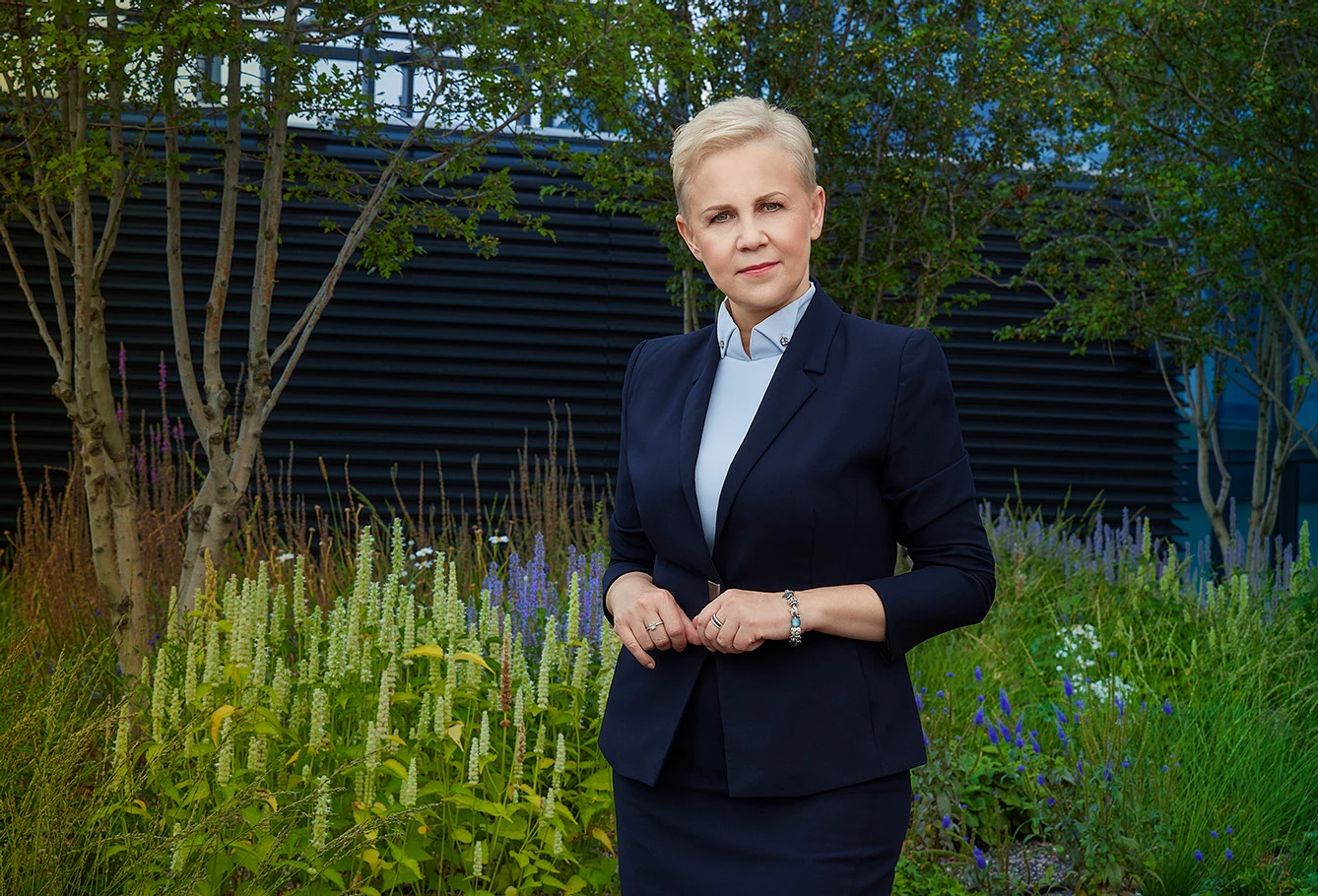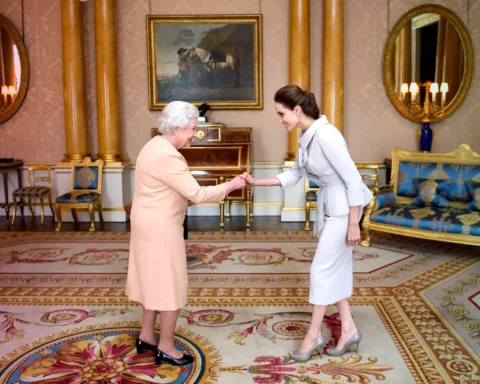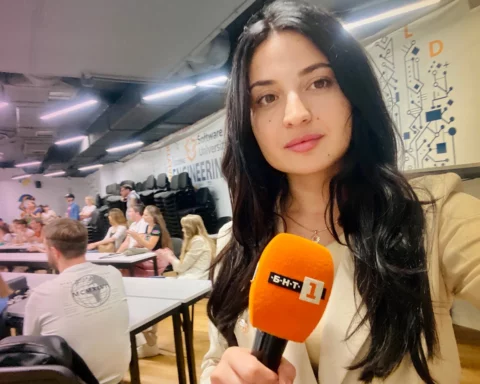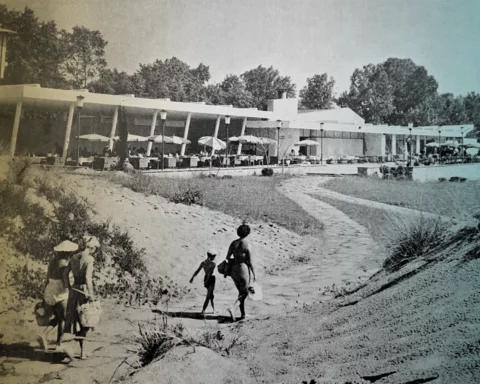The 3SeasEurope team attended the World Economic Forum in Davos, spending much time at the Three Seas House – the place of panel discussions. For three days in late May, the Team witnessed presentations on topics from areas ranging from business, roads, railways, digitization, and energy security. The Three Seas Initiative, uniting 12 countries of Central Eastern Europe from Estonia in the north to Croatia and Bulgaria in the south, has been coordinating infrastructure projects and business ventures in the region since its first summit in Croatia in 2016.
The importance of the Three Seas Initiative has only increased since the Russian invasion of Ukraine in February, making the issues of energy security and commodity transport in the region more important than ever.
This year, the annual summit of the Three Seas Initiative was held on June 20-21 in Riga, Latvia, with the war in Ukraine being one of the main topics of the discussion. The Three Seas region, being Ukraine’s closest European neighbor, can play a crucial role in helping Kyiv withstand the economic and military pressure it has been put under by Russia while also helping Ukraine handle the unfolding humanitarian crisis.
In Davos, we had the opportunity to sit down with Beata Daszyńska-Muzyczka, President of the Management Board at Bank Gospodarstwa Krajowego (BGK), the Polish Development Bank, and Chairperson of the Supervisory Board of the Three Seas Initiative Investment Fund, to ask her about the goals of the Three Seas House in Davos, Ukraine’s relations with the Three Seas region, and the future of the Three Seas Initiative.
3Seas: This year, for the first time, the participants of the World Economic Forum in Davos had the opportunity to visit the Three Seas House. What were the reasons behind the decision to create such a space?
Beata Daszyńska-Muzyczka: The idea for the Three Seas House was dreamed up during one of the meetings of the Supervisory and Management Board of the Three Seas Initiative Investment Fund. We wanted to make the Initiative better known, and advertise its aim by showing off its potential and exact geographical location.
For the countries that were behind the Iron Curtain, it was not the time to perceive each other as economies that can greatly support one another. Today, we are in a different position and on a different level of development. Our economies are much more advanced, and they are growing swiftly
Beata Daszyńska-Muzyczka
We want people to know why the Initiative is worth investing in. Since the World Economic Forum in Davos is attended by the most influential politicians and the world’s major financial institutions, we decided it presents an excellent opportunity to let the people know that it’s worth following the news on the Three Seas Initiative and for us to take the first step in presenting it to a slightly wider audience rather than just in one-on-one discussions with financial institutions.
3Seas: BGK, Poland’s Development Bank is closely linked with the Three Seas Initiative through its investment in the Three Seas Initiative Investment Fund. The Fund was created a few years after the Three Seas Initiative came into existence. Was there any involvement of BGK with the Three Seas Initiative before the investment fund was created?
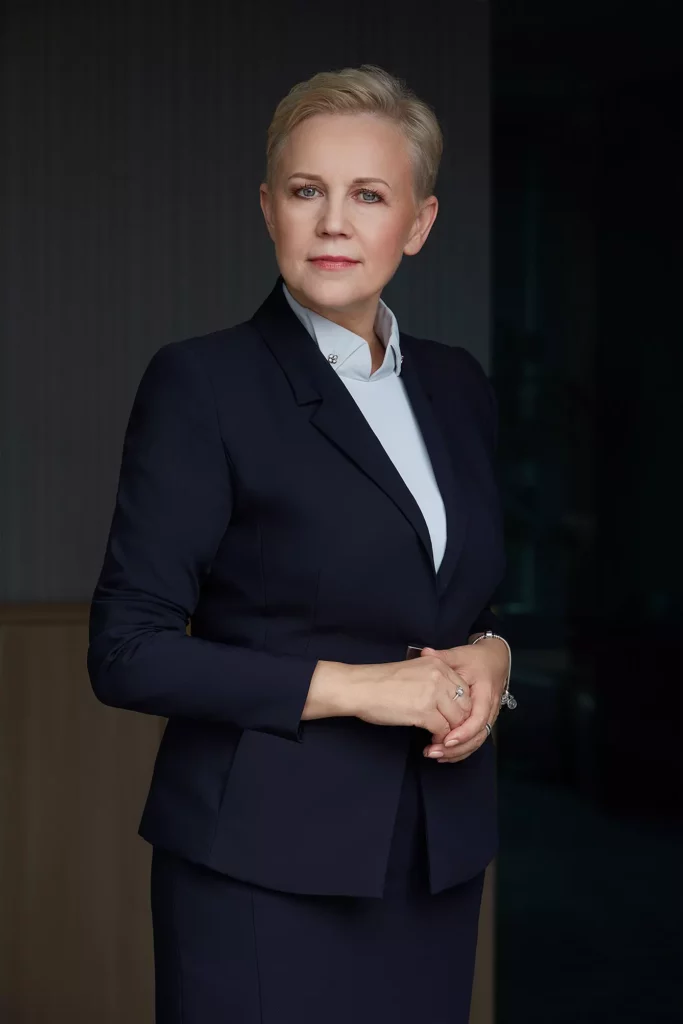
Daszyńska-Muzyczka: The Three Seas Initiative was founded as a presidential forum in 2015. At the time of the second summit of the initiative, which took place in Warsaw in 2016, the Board of the Bank consisted of new members who believed that the Three Seas Initiative was a great concept. As one of the members of the Board I was discussing with my colleagues what role could the Bank play in this initiative. What will the Initiative require? We thought that as it was to focus on connectivity on the north-south axis in this part of Europe and was aimed to increase the speed of investments in the region, funds would certainly be needed, and we had the experience we gained during other international investment, so we thought that launching the Three Seas Initiative Investment Fund would be a great thing.
That’s how the idea was drawn. As the Bank has relations with other development banks and institutions based in countries of our region, we decided to call a meeting and discuss the possible shape such fund could take on. That meeting marked the beginning of our cooperation. During subsequent, practically monthly meetings, we worked on creating the best strategy and legal structure for the fund, we signed an intention letter in Bucharest in 2018 during another Three Seas summit. The letter expressed intent to create the investment fund and was signed in the presence of the presidents who attended the summit.
It then took us a further 8 months to create the legal and financial structure of the fund. Why do I mention that it took 8 months? Because it usually takes 2-3 years for such international funds to come into existence. The creation of the legal and financial structure, as well as developing a strategy for such a fund that all parties can agree on, is time-consuming. It took us only 8 months and it’s worth emphasizing that the European Investment Bank and European Bank for Reconstruction and Development took part in the meetings leading up to the registration of the fund. The World Bank was also present during several meetings, so the investment fund was also of interest to some of the largest financial institutions.
We want people to know why the Three Seas Initiative is worth investing in
Beata Daszyńska-Muzyczka
Since the Initiative consists of 12 cooperating states it can be complicated to navigate with so many state development banks involved. Sometimes it is slightly difficult for people to differentiate between the investment fund and the presidential forum of the Three Seas Initiative. The fund was officially registered during the following Three Seas Initiative summit in Ljubljana in 2019. We then started looking for a professional company that would manage the fund. This task was entrusted to AmberInfrastructure Group, which has been carrying it out ever since.
3Seas: The Three Seas Initiative also consists of a business in the form of the Business Forum, which takes place every year during the Three Seas Initiative summit. It gathers several hundred representatives of the largest companies in the region. How can the Three Seas Initiative contribute to increasing the intra-regional trade in this part of Europe and foster closer ties between local businesses?
Daszyńska-Muzyczka: The volume of the intra-regional trade is increasing year on year, but we are still not using it to its full potential. Since the start of the transformation that took place after the rightful fall of communism, the countries of the region set out on the journey toward becoming the EU members. After entering the Union, we became more integrated with its economy, but particularly with the Western where more capital was available, and the possibilities were greater.
It was there where we could look for know-how, investments for our countries, and markets for our products. For the countries that were behind the Iron Curtain, it was not the time to perceive each other as economies that can greatly support one another. Today, we are in a different position and on a different level of development. Our economies are much more advanced, and they are growing swiftly. Our GDP growth is much greater than in many other countries hence the reason why now we are noticing how much we may benefit should companies in our region begin to cooperate more tightly with each other.
A Polish ICT company (Asseco Poland SA) took part in one of our panels at the Three Seas House. The company has subsidiaries in practically all Three Seas countries and calls the “Three Seas company” in many ways. It also operates in many other countries but serves as a great example of the potential that exists for the companies of the region to grow closer ties.
I’m not saying that we should forget about cooperating with other countries, because this is not about excluding any directions, substituting them, or viewing them as rivals. No, this is all about being inclusive, about complementing each other and adding possibilities, not working against each other.
3Seas: Regarding the EU, all Three Seas states are EU members. The President of Greece received an invitation to take part in the Three Seas Initiative summit held in Bulgaria last year. From time to time, there are speculations about whether additional countries could join the Three Seas Initiative. This year, Ukraine’s president Volodymyr Zelensky has received an invitation to the Three Seas Initiative summit in Latvia. Do you believe that the Three Seas Initiative could expand, and in your opinion would it matter whether such candidates were EU members or not?
Daszyńska-Muzyczka: It is important to make a distinction between the Three Seas Initiative and the Three Seas Initiative Investment Fund. On the level of the Three Seas Initiative, it would be up to whether there is a consensus between the presidents of the 12 Three Seas states. All these countries are EU members. From what I have heard during summits and been told by the presidents, the Three Seas Initiative is limited to countries that are EU members and therefore share a certain system, which is connected to the European system. A system that follows EU directives and unites all these countries. Greece is also part of the European Union.
If we look at the Three Seas countries, they are the most recent members of the EU and are, within this European system, catching up and closing the gaps in development in order to have a convergence of opportunities and to strengthen the EU as a whole. If we were now to start playing a role as a more developed region in comparison to regions outside of the EU, then we would be creating a hybrid entity that could be too difficult for us to carry.
The war in Ukraine is a form of a wake-up call, which shows that we must think about smart transformation, and not about sudden jumps
Beata Daszyńska-Muzyczka
However, I think it is a good thing to cooperate with such countries, to invite them to the Three Seas summits and inspire them. Such meetings offer the possibility to foster closer ties on a personal level. When it comes to the Three Seas Initiative Investment Fund, it is currently represented by 9 countries. Two countries are in the process of deciding on how to join and which sum to contribute to the fund. However, Austria for example has been saying from the start that it will not join the fund as it does not see a need to do so.
We are sometimes asked why when we present the Fund we mention 11 countries while the Three Seas Initiative consists of 12 countries. That was Austria’s individual decision. The investment fund would have been created anyway, regardless of how many countries joined. It would have happened even if it had remained in its original form with only 2 countries (Poland and Romania) as members.
3Seas: This year’s summit, taking place in Riga, Latvia, will be held on June 20-21. During a recent Three Seas informational event organized by the Polish and Latvian Embassies in London, the Latvians stated that this year’s conference aims to attract new investors to the Three Seas region. Which directions do you believe to be particularly promising when it comes to attracting investors? East Asia, or perhaps the Gulf states? Are these places to focus on?
Daszyńska-Muzyczka: We started several interesting discussions with large international infrastructure investment funds just before the pandemic hit. We held our first discussions with Australian funds during a visit there. We did the same with active funds in Japan. Similar talks were started with the Japanese Ambassador to Poland, which we believe were promising. We also have reports that show the potential of the Three Seas as well as the gaps in infrastructure that exist in this region.
The reports were translated into Japanese and Korean and are now available online for even far away countries to be able to access this information. The reports were met with vivid interest and we have been since in constant touch with our Japanese partners. We also began to cooperate more closely with the Japan Bank for International Cooperation (JBIC). It is a Japanese development institution. The Governor of JBIC, Tadashi Maeda, sent a video message that was played before one of our panels at the conference in Davos. He spoke about how he perceives the Three Seas Initiative and how Japan has a positive outlook on this part of the world.
I’m talking strictly about the Three Seas region since it is important for potential partners from faraway countries not to feel the need to analyze the situation of each country. The Three Seas Initiative Investment Fund serves as a form of a gateway that leads to a broader analysis of countries that have already been analyzed individually. That allows for an opportunity to invest in the entire region. We also entered talks with large investment funds from Canada and we initiated relations with entities in the Middle East.
Let’s go back in time a little bit. The process of starting up the fund took about 2-3 years. It then took a further year or two to attract investors. The fund became operational, by which I don’t mean its registration date but the actual fully-working state, which happened exactly on February 26th, 2020. Approximately two weeks later the world entered the pandemic. Despite all the limitations and the crisis associated with COVID-19, the fund has been running for more than 2 years now and has completed 3 investments.
We are also in talks with many other potential investors. These negotiations can be quite lengthy. There are many investment offers that we are currently analyzing. We have 278 potential investments in the pipeline, which illustrates how many possibilities are available here in the region. Before the pandemic hit, I would have discussions with colleagues from other financial institutions who told me “Beata, there is a ton of money available in the world but not that many good projects to invest in”. I used to answer them “if you have a load of money, I have a pipeline full of good projects and you can just transfer the money.”
3Seas: One of those investments, or rather a Road Map Agreement at this point, was signed between the Three Seas Investment Fund and the Romanian national gas operator, Transgaz. How do you see the future of this project?
Daszyńska-Muzyczka: Yes, three investments have been finalized and are developing well. It is easy to see that we are in the process of energy transformation, as one of our investments, Enery, is successfully developing photovoltaic power plants in several countries in the region. This shows that the transformation is taking place. At the time of the start of Russia’s invasion of Ukraine, the European Commission and governments of many countries started thinking twice about whether such a quick jump, with “zero-emission” targets while the Nordstream 2 gas pipeline lies on the seabed, is the only way forward.
The war in Ukraine is a form of a wake-up call, which shows that we must think about smart transformation, and not about sudden jumps. After Russia launched the war, many countries started saying “maybe we should slow down a bit, maybe we should accept gas as a transitional energy source and maybe we should embrace nuclear energy”? Countries also started thinking about accepting coal as a transitional energy source in order to provide security.
Should we reach a point at which we would have to quit nuclear power and using gas would not be an option, would we then turn back to coal-powered power plants or would our governments say, “no, let’s wait for the sun to shine a bit more and then, maybe, through solar power we will be able to help you stay warm for a little while”? Or would our governments instead prefer to avoid riots on the streets and think that, after all, it is better to use some coal to provide energy security, at the same time avoiding having factories shut down and the industry coming to a standstill? These are the dilemmas that we are currently facing, ones that are quite connected to politics. Business never falls far from politics.
3Seas: The final question is connected to Ukraine. It is a topic being brought up at almost every panel discussion over here at the Three Seas House in Davos. The state of infrastructure, in particular the condition of the transport infrastructure, is very important to Ukraine, and to the world, in connection with the food crisis and the difficulties with exporting Ukrainian grain. There are several ports in the Three Seas region, such as Klaipėda in Lithuania, Gdańsk in Poland, Constanța in Romania, and Varna in Bulgari. They all could potentially help Ukraine to bypass the naval blockade Russia imposed on the Ukrainian Black Sea coast. Do you believe that the Three Seas can help Ukraine in this regard and continue delivering this help over the coming months or even years?
Daszyńska-Muzyczka: This is a very important question. In order to avoid a possible food crisis, which is currently on everybody’s tongues, we must help Ukraine export its food products, particularly grain. Then we will need to face the problem of sowing new crops. We need to take the first step in helping Ukraine export its grain to countries in Europe. Still, we also need to ensure that the grain can reach ports and be exported to faraway lands, especially in Africa, which used to import most of its grain from Ukraine and Russia. This is why the transport infrastructure is so critical. The roads form just a part of the issue, as some of the grain will be transported by road, but the railway infrastructure will be of even greater importance since most of the goods will be carried by rail.
This poses yet another challenge. In Europe, rail operates on narrow-gauge railways, while Ukraine uses broad-gauge railways. The speed with which the grain can be transported, as well as the railway capacity, will be of importance. They will pose a logistical challenge that we will have to tackle quickly. Poland and Romania will undoubtedly be involved, and Slovakia will face additional challenges considering the terrain the goods will have to traverse. Our countries will play a key role here.
Theoretically, it isn’t connected with the Three Seas Initiative itself, but the effort will take place on the territory of the Three Seas states. Therefore, accelerating or expanding some of the infrastructure projects to their utmost possible will significantly help Ukraine. Investments in road and rail infrastructures will be vital. We will also have to keep expanding business relations to help, apart from Ukraine, our neighbors in the Western Balkans. We will keep working on how to expand best the infrastructure network linking our region and strengthening our security in a broader context.


